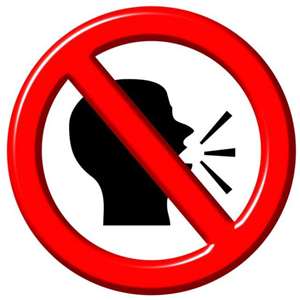 At least two complaints lodged with the Louisiana Office of Disciplinary over the last few months allege misconduct arising out of lawyers’ use of the “N-word” or some variation of it. In one complaint, a lawyer used the “N-word” in discussing the racial composition of juries in Orleans Parish. See, e.g., Complaint to Bar Association Prompts Negative Campaign Attacks in North Shore DA Race, New Orleans Times-Picayune (Oct. 24, 2014). In another, a lawyer used the word “negro”1 to refer to an African-American at a meeting. While the ODC has yet to file formal charges in either case, the complaints highlight the difficulties associated with attempting to police lawyer speech.
At least two complaints lodged with the Louisiana Office of Disciplinary over the last few months allege misconduct arising out of lawyers’ use of the “N-word” or some variation of it. In one complaint, a lawyer used the “N-word” in discussing the racial composition of juries in Orleans Parish. See, e.g., Complaint to Bar Association Prompts Negative Campaign Attacks in North Shore DA Race, New Orleans Times-Picayune (Oct. 24, 2014). In another, a lawyer used the word “negro”1 to refer to an African-American at a meeting. While the ODC has yet to file formal charges in either case, the complaints highlight the difficulties associated with attempting to police lawyer speech.
In the mid-1990s, various ABA committees proposed and withdrew amendments to ABA Model Rule 8.4 to address the issue. For example, in 1994, the ABA Standing Committee on Ethics and Professional Responsibility proposed and later withdrew an amendment prohibiting a lawyer from manifesting “by words or conduct, in the course of representing a client, bias or prejudice based upon race, sex, religion, national origin, disability, age, sexual orientation or socio-economic status.” See ABA Center for Professional Responsibility, A Legislative History: The Development of the ABA Model Rules of Professional Conduct 1982-2013 at 855 (2013). In the same year, the ABA Young Lawyers Division proposed and later withdrew an amendment prohibiting a lawyer from committing “a discriminatory act prohibited by law or to harass a person on the basis of sex, race, age, creed, religion, color, national origin, disability, sexual orientation or marital status, where the act of discrimination or harassment is committed in connection with the lawyer’s professional activities.” See id. at 854. Finally, in 1998, The ABA Criminal Justice Section proposed and later withdrew an amendment prohibiting a lawyer from committing in the course of representation “any verbal or physical discriminatory act, on account of race, ethnicity or gender, if intended to abuse litigants, jurors, witnesses, court personnel, opposing counsel or other lawyers, or to gain a tactical advantage.” See id. at 857.
Ultimately, the ABA in 1998 addressed offensive lawyer “words or conduct” manifesting “bias or prejudice” through amending the comments to Model Rule 8.4 rather than the black-letter rule. That comment currently provides as follows:
[3] A lawyer who, in the course of representing a client, knowingly manifests by words or conduct, bias or prejudice based upon race, sex, religion, national origin, disability, age, sexual orientation or socioeconomic status, violates paragraph (d) when such actions are prejudicial to the administration of justice. Legitimate advocacy respecting the foregoing factors does not violate paragraph (d). A trial judge’s finding that peremptory challenges were exercised on a discriminatory basis does not alone establish a violation of this rule.
Some states have incorporated language from either the failed ABA proposals or the current comment into their versions of Rule 8.4. Minnesota, for example, prohibits a lawyer from harassing “a person on the basis of sex, race, age, creed, religion, color, national origin, disability, sexual orientation, or marital status in connection with the lawyer’s professional activities.” See Mn. Rules of Prof’l Cond. R. 8.4(g); In re Woroby, 779 N.W.2d 825 (Min. 2010) (finding misconduct arising out of harassment on the basis of religion). Indiana prohibits a lawyer from engaging “in conduct, in a professional capacity, manifesting, by words or conduct, bias or prejudice based upon race, gender, religion, national origin, disability, sexual orientation, age, socioeconomic status, or similar factors” but notes that “[l]egitimate advocacy respecting the foregoing factors does not violate this subsection,” nor does “[a] trial judge’s finding that preemptory challenges were exercised on a discriminatory basis . . . .” See Ind. Rules of Prof’l Cond. R. 8.4(g); In re Barker, 55S00-1008-DI-429 (Ind. Sep. 6, 2013) (suspending lawyer for 30 days for calling a party “an illegal alien”). Colorado, Florida, Ohio, Michigan, and Rhode Island have likewise adopted similar rules. See Co. Rules of Prof’l Cond. R. 8.4(g); Fl. Rules of Prof’l Cond. R. 4-8.4(d); Ohio Rules of Prof’l Cond. R. 8.4(g); Mich. Rules of Prof’l Cond. R. 6.5(a); R.I. Rules of Prof’l Cond. R. 8.4(d).
Louisiana has no disciplinary rule, comment or other authority prohibiting the use of racially-offense language by a lawyer. Nor is it necessary. Comment 3 to ABA Model Rule 8.4 is a vacuous, feel-good statement that simply sets forth the truism that offensive words or conduct will violate Model Rule 8.4(d) “when such actions are prejudicial to the administration of justice.” Of course. Any words or conduct that are “prejudicial to the administration of justice” violate the model rule and would also violate Louisiana Rule 8.4(d).2 Enough said.
- It is highly questionable whether this word is even racially insensitive or culturally offensive. ↵
- An example of a racial comment that likely would violate Louisiana Rule 8.4(d) would be a remark about “race, religion, color or national origin” made by a lawyer within earshot of a jury causing a mandatory mistrial under Louisiana Code of Criminal Procedure article 770. ↵
